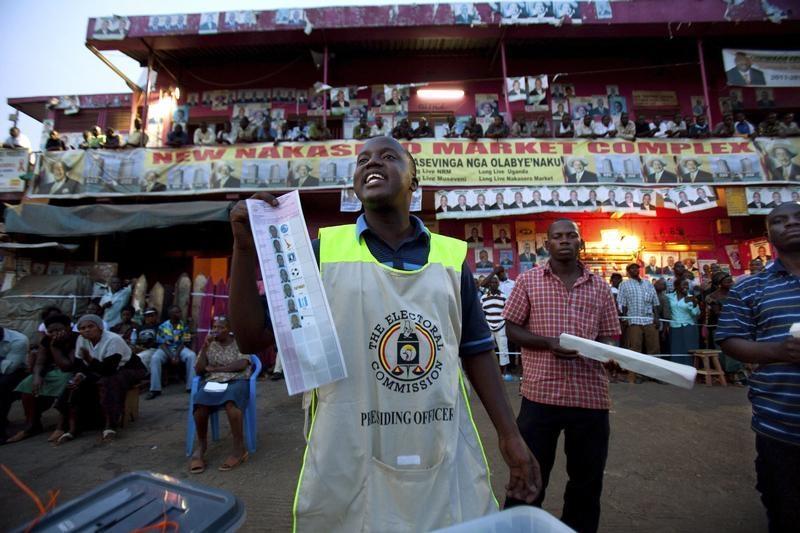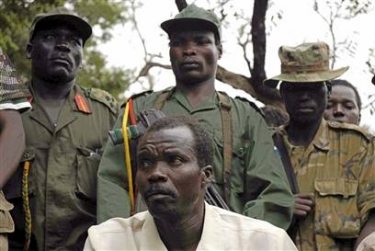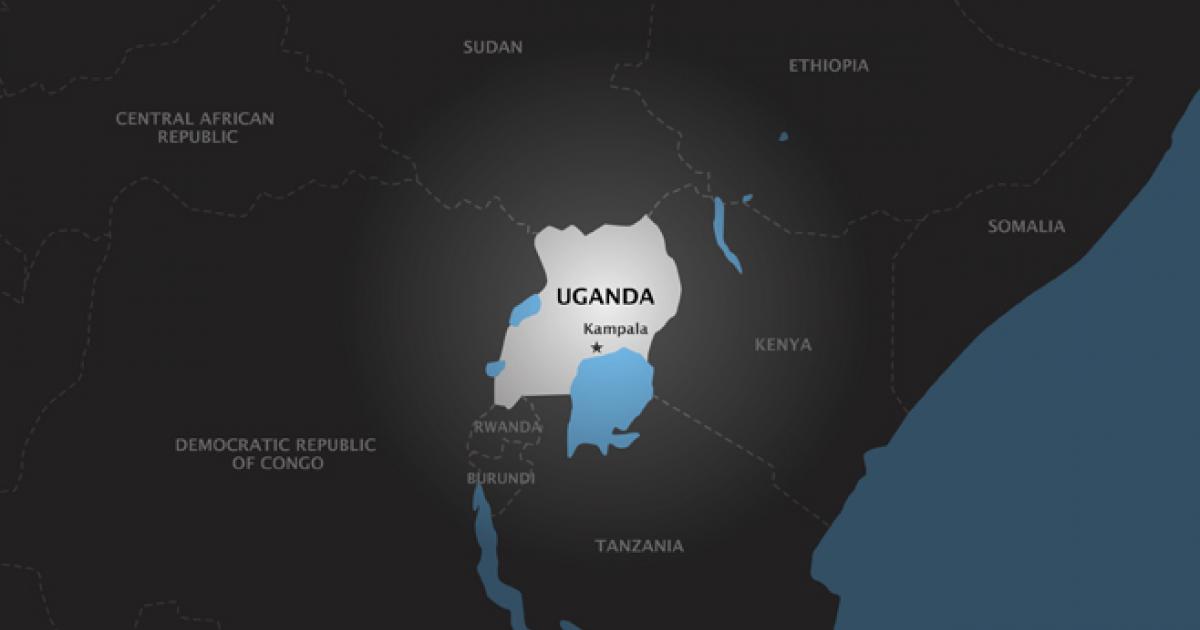When Security Minister Amama Mbabazi proposed a law to make it possible for the government, on his order, to listen to your phone conversations, read your emails, go through your postal mail, and detain you without a court order on the basis of whatever they find- it has now emerged that his proposals were never checked against the constitution and other laws that preserve personal liberty and privacy.
The casual way in which these rights were “wished away” in the presentation of the Interception of Communication Bill 2007 has drawn a chorus of protest from human rights bodies. Many political watchers say it’s the writing on the wall of things to come ahead of the 2011 general election. It appears too, for example, that the Security Ministry never bothered to check with the Uganda Communications Commission, the regulator of the mobile phone industry nor with the phone companies themselves. Both groups have joined calls for the proposed law to be radically reformed- to bring it in line with 21st century standards of rights no less the Uganda constitution. The Bill in its current form would have created “North Korea” conditions in a country that is postured at least officially by the ruling NRM party that proposed this law as a beacon of democracy and stability in East Africa.
Some of the contradictions in the manner the law was proposed bordered on recklessness- not least that the proposer of the bill is simultaneously the overseer of intelligence organizations as well as the chief operating officer of the ruling party as Secretary General. No safe guards were written into the bill that would have distinguished which persona was ordering the tapping into phones –say of a political opponent- Mbabazi as security minister or as party official. The fusion of state and party – an example being the unabashed manner in which two are combined in the proposed bill- is not unusual in Uganda’s case and reveals the façade of democracy in a country dominated by the structures of a single party and the control of a few individuals of that party, key among being Mr. Mbabazi. The ICB is just the latest in a line of legislative strategies that are increasing the grip of the state on personal liberties and freedoms.
This becomes clearer when stacked together. Along with the ICB, the government through the new minister for technology, Aggrey Awori, has proposed [and succeeded] in creating a National Information Technology Authority or NITA. Among the concerns technology industry about NITA is not just that it would duplicate the role of several other organizations and impose an extra cost on the national purse but that it gave the government power to determine how private persons used any technology including those who operated them commercially like say internet café’s. Some worry that NITA would be the equivalent of communist China’s control infrastructure where particular websites and platforms like blogs can be turned off to clean what the Beijing authorities , notorious for their clampdown on freedoms, deem offensive. In the run-up to the 2006 general election, the government arm twisted its way into banning radiokatwe.com an anti-NRM site, an action which the group Reporters Without Borders called the first case of internet censorship in sub-Saharan Africa.
The coming of NITA, less than 24 months, to the next general election is a perhaps a sign of the intention to lawfully control such content. UCC that blocked radiokatwe at the time was heavily criticized for its actions. This situation has been described by one diplomat as the “rule by law not of the law”.
The current basket of proposed and current laws means that the government, which already regulates physical assemblies, can control electronic and other association as well. It also exercises a huge weight against the freedom of speech itself. Consider that the party/state nexus today has influence over the largest public television network- Uganda Broadcasting Council and its radio affiliates and also controls the publicly traded New Vision which is the largest circulating newspaper.
The New Vision Corporation , which is expanding by buying up-country radio stations, has also expressed an interest in television. Once combined with the reach of the state into private communication and its ability to restrict public interactions – the ensuing picture resembles more the structures in Burma and not such democratic pillars in Africa like Ghana. The extent of control sought also extends to the organized civil society who this week have filled a constitutional case against the Non-Governmental Organizations’ Act which has been amended to give the state even more powers.
According to the Human Rights Network the law undermines ‘the operations of NGO’s and usurps their independence”. Most critics of the laws including political parties and civil society groups assign an intention to their enactment outside the official argument that the government makes. “This law is meant to deal with stubborn NGO”s” says Dr Henry Onoria, a lecturer of law at Makerere University. Among other things, Onoria says the law requires NGO’s to acquire an annual permit. “If they are unhappy with you they can deny you the permit” he adds. The NGO Act also gives wide ranging powers to the NGO Board, which concerned voices say, is badly composed. For example, just four of its 15 member board can refuse the renewal of the permit.
The Board can also determine who is employed at NGO’s and requires that they give a seven day notice before contacting any people they intend to help. “In other words you are not allowed to get in touch with the people” Onoria said. In the case of the phonetapping law- which Mr. Mbabazi says enhances the capacity of the government to respond to national security challenges- it’s not difficult to see why critics point to a Stalinist agenda. At least that it has little to do with security in fact. Firstly, even if it was Mr. Mbabazi who pushed through the gazetting of the internal and external security organizations as the two formal intelligence bodies; during his service in government , there has been an explosion of numerous semi-autonomous other groups and agencies. One count put security related outfits at 30.
Mr. Mbabazi’s appointment itself as security minister was seen in the same mould of duplicate roles since at the time, the President had appointed a coordinator of intelligence organizations in the person of Gen David Tinyefuza. Often the multiple intelligence and security agencies are working at cross-purposes and are in friction with each other as they compete for budgets. Critics say this orgy is nothing but an extension of state patronage with little to do with protecting the very rights the ICB claims it wants to protect. Among the organizations named in a recent survey published in the media are the “Chieftaincy of Military Intelligence (CMI), Joint Anti-Terrorism Taskforce (JATT), Rapid Response Unit (RRU), Anti-Stock Theft Unit (ASTU), Oil Wells Protection Unit, Special Revenue Protection Unit (SRPU), Popular Intelligence Network (PIN), State House Counter-Intelligence Unit (SHCIU), and Special Investigations Bureau (SIB). Also included are the “Uganda Peoples Defence Forces (UPDF), Special Forces (SF), Presidential Guard Brigade (PGB), Joint Intelligence Committee (JIC), Criminal Investigations Department (CID), Uganda Police Force (UPF), Special Police Constables (SPC), Para-Military Police, Land Protection Unit (LPU), Child Counter-trafficking Unit (CCTU) and Crime Intelligence Unit (CIU)”. The police also recently added an anti-terror unit often seen in black commando uniforms riding in shiny Toyota pick-ups. This is not to mention various militia groups that are cobbled up whenever the need arises like the “ Amuka Boys, Arrow Boys, Civic Defence Unit (CDU), Kalangala Action Plan (KAP), Local Defence Unit (LDU), and Frontier Guards” etc. The fact that security forms a large labor pool across various institutions and sectors including private security which employs many veterans [and numbers about 25,000 personel], it would appear logical that the road to reform would ideally begin with rationalizing the operation of all the security related organizations to enhance their efficiency not necessarily adding to the cost of security through the Bill. One of the criticisms of the ICB is that in an environment where intelligence agencies are sprouting up every day, it’s not clear how their requests to tap into private communications will be regulated.
When placed in the context of much-needed reforms it also does not make money sense. One of the more significant building blocks for national security is the national identity card project. The line ministry of Internal Affairs told parliament this week it had no money for it. Far from nipping threats in the bud, which the state with its myriad of security organizations ought to be able to manage, the ICB has fewer advantages compared to the national ID project. One of the main drivers of insecurity, especially the terrorism which the minister talks of, is the porous borders of Uganda as well as the incidence of document fraud and weak immigration capacity something that can be helped by a national ID.
It would appear too that the national ID would have preceded the ICB since one of the challenges of Uganda is the absence of addresses whether for home or business. Indeed seen against this light it cannot be that the capacity to listen to phone calls enhances security as such and lends credence to those who would say it has sinister political motives instead. Perhaps finally the translucent accountability for classified funds spent on national security is a sticking point. It cannot be easy tracking all the expenditures or getting value for money for all the organizations participating in security. The military alone continues to grapple with the loss of billions from the fudging of its records. A solid criticism of particularly the ICB should be that it is a retrospective legislation meant to justify money the state has already spent. Government which the minister said already taps phones recently, according to those in the know, completed a three year multi-million dollar expansion of its capacity to eavesdrop, with technical assistance from Israel at an unspecified cost.
The project, known in intelligence circles by its code name “Katonga” is not one of the best kept secrets and has been the subject of grumbling among competing interests because of its hefty budget. It is directly overseen by the Security Minister himself. However if the ICB is to work retrospectively to justify not just the classified budget for Katonga, stationed on one of Kampala’s hills, but also its purpose it should find the proposed amendments to protect personal freedoms and liberties a tolerable modification.
Simply working backwards to justify the project is not enough reason to drown the rights protected by the constitution. Indeed apart from the amendments to the eavesdropping bill MP’s may want to expand the oversight into accountability mechanisms in the entire security sector. Around the world “national security” is regularly abused not just to deny people their rights but to justify expensive state projects often aimed at siphoning taxpayer’s money. One of the key aspects of protection of liberties is to see that the conduct of national security conforms to the law but is also rational.
To this extent real reform in the security sector which bears the most blame for the abuse of rights is needed. Most importantly such oversight, if possible, would help check the wide ranging capacity of the government of the day to control the enjoyment of personal freedoms and liberties.
submitted for the Daily Monitor










